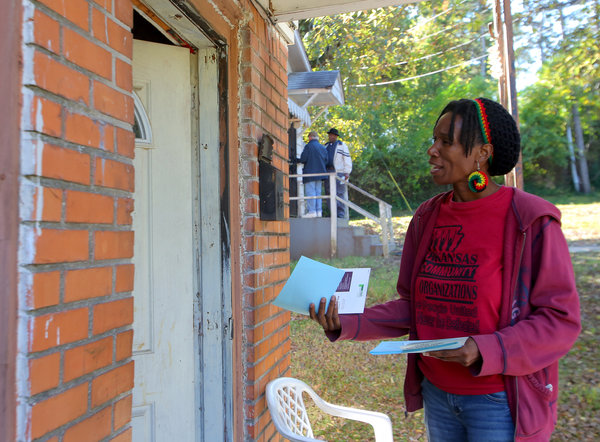This story has been updated to reflect election results.
Voters in four states approved measures Tuesday to raise the minimum wage, The Associated Press projected.
The wage increase won its biggest margin of victory in Alaska, where it garnered 69 percent of the vote. In Arkansas, it received 65 percent; in Nebraska, 59 percent approved raising the minimum wage, while in South Dakota, the margin was 53 percent.
The proposals differed in their particulars. Alaska would set its minimum wage the highest, with a gradual rise to $9.75 by 2016. Nebraska would go to $9 in 2016, South Dakota to $8.50 in 2015 and Arkansas to $8.50 by 2017. In Alaska and South Dakota, the minimum wage would continue to rise in line with price inflation in following years, which makes an enormous difference in the long term.
The federal minimum wage is $7.25; of the states voting on referendums, only Alaska currently sets a minimum wage higher than that, at $7.75. Until the mid-1980s, Alaska was the only state that had a higher minimum wage than the federal level. Today, 23 states and the District of Columbia do; that number will go to 26 in January, when higher minimum wages take effect in Hawaii, Maryland and West Virginia.

President Obama has made an increase in the federal minimum wage to $10.10 a signature issue. That has been a nonstarter in the Republican-held House of Representatives. But as Governing magazine reports, 10 states have enacted minimum wage increases this year. Nine of those states have a Democratic governor and Democratic-held legislatures. The 10th is Michigan, where a bipartisan legislative coalition and Gov. Rick Snyder, a Republican, agreed on a legislative minimum wage increase that averted an effort to put a larger wage increase on the ballot.
The states with the lowest minimum wages tend to be in the South and the Plains, regions where incomes are relatively low and politics are relatively conservative. The four states considering referendums all have Republican-held legislatures that have not advanced minimum wage proposals. (Nebraska’s unicameral legislature is officially nonpartisan, but a majority of its members are Republicans.) Instead, minimum wage advocates put their proposals on the ballot by collecting signatures for initiative petitions. The votes are a test of the proposition that minimum wage increases are popular even in red states where legislatures have resisted adopting them.